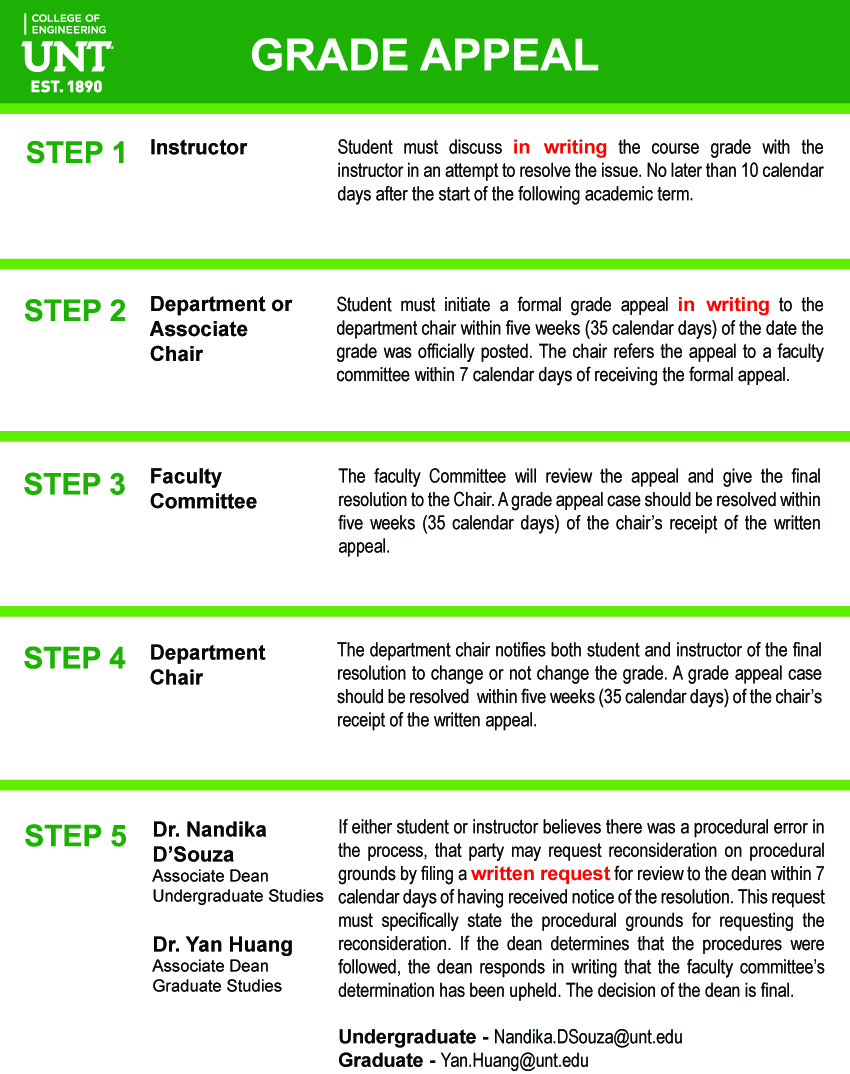Academic advisors can help students prepare for classes, graduation, and future careers, as well as with finding financial assistance and student employment. Advisors mentor students in their academic disciplines, help plan class schedules each semester, select necessary courses, give career advice, run degree audits, and more.
To set up an advising appointment contact us at:
University of North Texas Discovery Park
3940 N. Elm, Room F101
1+ (940) 565-2400
MechanicalUndergraduate@unt.edu
ME engineering advisors
College Advising Office
The College of Engineering Advising office includes advisors and counselors who assist students through support activities such as: new student orientations, assistance with registration issues, choosing a major and/or minor, clarification of degree requirements, completion and final approval of degree audits, clarification of university and college policies and procedures, preparing degree audits, and filing for graduation. You can get in touch with the College of Engineering Academic Advising office at +1 (940) 565-4201.
Advising Code
You might find that you need an advising code to register for your courses. Please read and follow the instructions below depending on the reason the advising code is needed.
Alert, Probation, or Suspension Status: You are required to meet with a College of Engineering advisor in person to get your code. You can schedule an appointment by contacting one of the college's advisors. Contact College of Engineering advisors by clicking here or call +1 (940) 565-4201
Orientation: If you are a new, transfer, or transient student, you will need to attend new student orientation in order to get your code. Click here for more information about orientation, or call +1 (940) 565-4198
Keep in mind, there are other reasons you might need an advising code that is not listed. If you are having issues, contact the College of Engineering advisors by clicking here or call +1 (940) 565-4201
Curriculum and academic policies
Class schedules
Current schedules for upcoming semesters are available in PDF format.
Tutoring
Check out the available resources UNT offers to help you prepare for your engineering classes.
- Tutoring Center
- Learning Center
- Chemistry Resource Center
- Math Lab
- TRIO Student Support Services
- Physics Instructional Center
- Writing Center
Other advising resources
If you are trying to register for classes and are blocked for pre-requisites you can now fill out the online override form: Electronic Override Form
UNT's Career Center provides advice about future employment opportunities, as well as how to get hands-on experience as a student. It has information about jobs and employers, and the staff can help you with resume and letter writing, job search strategies and interview preparation. For more information about these resources, visit Jobs and Finances.
The UNT Catalog offers information regarding required and suggested classes to meet undergraduate, graduate and departmental academic requirements for graduation. In the catalog, you can find lists of courses, course descriptions, academic requirements and helpful resources.





